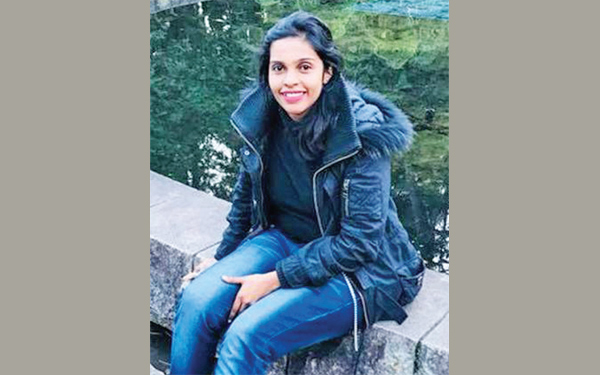Sri Lankan’s death in Japan casts spotlight on its refugee system

Ratnayake Liyanage Wishma Sandamali, 33, was taken into custody in Japan for overstaying her visa last year.
Source:Dailynews
A Sri Lankan woman fled to the authorities in Japan in August last year to escape from domestic violence, end up dying in detention in Nagoya last month.
Ratnayake Liyanage Wishma Sandamali, 33, who was taken into custody for overstaying her visa, died on March 6, having lost 20kg while she was in detention over a stress-induced stomach condition.
“I need to recover, but I don’t know how to do it. Please help me to recover,” she wrote in a February letter to non-profit group Start, which helps immigrants, adding that she was being deprived of medical attention.
She is the 18th foreigner to die in the custody of the Japanese Immigration Services Agency since 2007.
The case has become a lightning rod for activists who decry inhumane Third World treatment in a First World country.
Wishma was vomiting blood in her final days, and was so weak that she had no control of her arms and legs.
The immigration authorities allegedly turned a blind eye to medical expert advice to put her on an intravenous drip or to grant her provisional release to ease her stress.
A report by public broadcaster NHK suggested that officials tend to suspect malingering for minor illnesses in their reluctance to grant provisional release.
Yet, at the same time, Japan is pushing through reforms to its Immigration Control and Refugee Recognition law that will forcibly deport refugees if their applications for the right to stay are rejected twice.
The law allows immigrants to apply for refugee status as many times as they want. Deportations cannot be carried out during the application or appeal process.
The revisions, Justice Minister Yoko Kamikawa argued, will solve the problem of repeated asylum bids leading to indefinite detention and the accompanying stress.
“Many individuals have been trying to avoid deportation, contributing to their prolonged detention,” she said, insinuating that they have been trying to game the system.
She added that the official discretion will “unlikely” be wrong since each application would have been independently reviewed twice.
But the United Nations Human Rights Council, which has criticised Japan’s practice of prolonged detention, has slammed the proposed revisions by saying that they do not meet international criteria for human rights protection.
Japan’s meagre refugee acceptance rate means that the two-strikes-you-are-out rule will only serve to endanger a vast majority of asylum seekers, activists say.
Only 44 out of 10,375 applications were accepted in 2019, or a rate of 0.4 per cent.
Comparatively, the United States accepted 29.6 per cent of refugee applicants, while Germany accepted 25.9 per cent.
The proposed revisions include a “supervisory measure” for provisional release under strict conditions, including a ban on paid work.
Activists say the reforms are for the worse. Protests and silent marches have been held in Tokyo.
Ippei Torii of the Solidarity Network with Migrants Japan said at one such rally: “We need to change our society in which those who should be protected are treated like criminals.”
Wishma came to Japan on a student visa in 2017, but her permit was cancelled in 2019 when she was unable to afford her tuition fees.
Media reports said her dream was to teach English in Japan.
She initially said she wanted to return to Sri Lanka when she was first taken in by the authorities.
But she changed her mind with flights reduced due to COVID-19 and with her boyfriend writing a letter to her threatening revenge.
Yasunori Matsui, 66, an adviser to Start, said: “Rather than listening to immigrants’ needs and providing relief, Japan is treating them like a problem and looking at how to send them back. If there was any true understanding of the value of human life, it would have been possible to save her.”
Wishma’s mother said at an online news conference: “My daughter is not an animal. And even animals get proper treatment when they are sick.”
– The Straits Times







